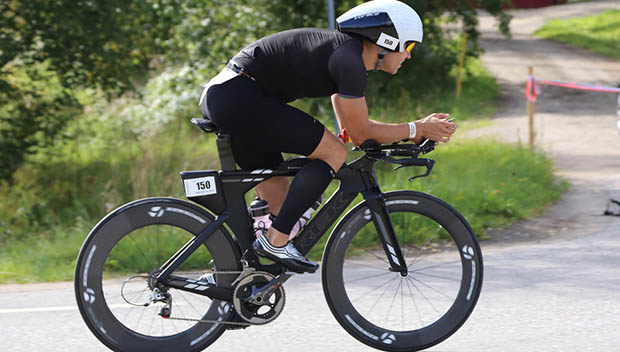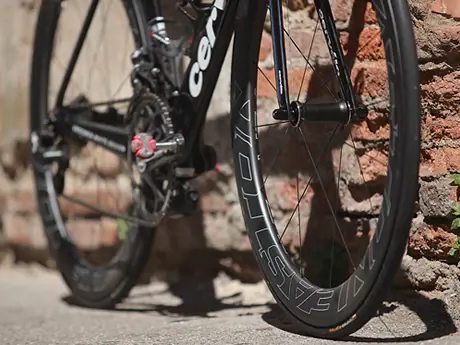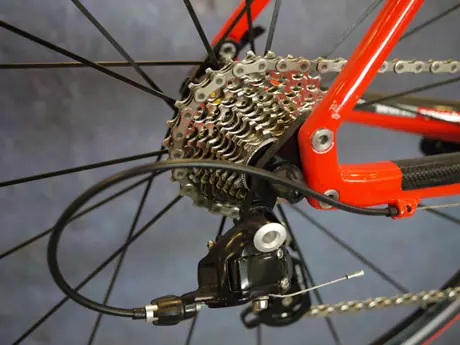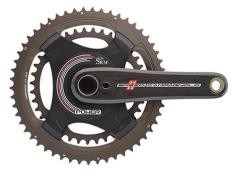
Photo/Chris Hunkeler, Flickr
Whether you're just starting out or have dozens of races under your belt, you know the importance of having the right gear. If you're just starting out, you might not want to spend thousands until you're sure you've fallen in love with the sport. If you're a pro-hopeful, you'll want the gear that allows you to get to the next level. Don't let your level of experience dictate what you think you need to succeed.
Beginner
Swim: You'll need a swimsuit and goggles. We also recommend a cap to keep your hair out of your face (especially for those with longer hair). For those who plan to continue with triathlon, training aids like a pull-buoy and a kickboard can add value to and break the monotony of swim sessions. If you're an adult onset swimmer, lessons are a must. They will help you build confidence and skill in the water.
Bike: If you're just starting out, a road bike might be your best option. You'll also need a helmet, and if you're planning on seeing just how far you'll make it as a triathlete, cycling shoes and clipless pedals are also recommended. Performance sunglasses will keep your eyes protected. For those who don't have easy access to safe roads, you'll also want an indoor trainer.
Run: You'll need a pair of quality running shoes to give you the support you need while racking up the miles. Depending on where you run, you may also want a hat, a visor or sunglasses to protect your head and or face from the sun.
Race Day: You'll also want to invest in a race day kit with a lightweight chamois to keep you comfy on the bike, yet not feel too bulky while running. Race day kits come in either one piece or two. We recommend whatever you feel more comfortable in. Also look for a top with some pockets so you can stash sports nutrition for your run. If you need a sports bra, you'll want something that will be both supportive enough while running yet quick-drying since you'll be wearing it on the swim.
Intermediate
Swim: Besides a cap, goggles and a swimsuit, you'll also want a triathlon-specific wetsuit for colder swims. A wetsuit will not only provide warmth, it will provide additional buoyancy, which will make you faster in the water while also keeping you warm.
Bike: A triathlon-specific bike will shave minutes off the bike leg of a race as it puts you in a more aerodynamic position. Clipless pedals and tri-specific cycling shoes will make your pedaling more efficient and will be faster to get into and out of in transitions. Consider getting an aero helmet to shave additional time off, a performance-based bike computer/GPS unit and heart rate monitor to help gage effort. We also recommend several pairs of cycling-specific shorts to keep you comfortable when putting in miles during training rides.
Run: You've likely already found a pair of running shoes that work for you, so we recommend getting a second pair for race-day only—but be sure to break them in before racing! We also recommend upgrading your race shoes to elastic shoe laces for easy slip-on in transition.
Race Day: Now that you've gotten chest-deep into triathlon, we recommend a gear pack to keep your race day equipment organized and provide an easy way to carry it all in and out of transition. We also recommend a race number belt that you can put on between the bike and the run. At this point in your tri journey, you may also want to consider a wearable GPS for training and racing, which is a great tool for motivation, as well as to prevent you from going too hard too soon.
Aspiring Pro
Swim: Chances are you're looking to greatly increase your swim speed. We recommend either finding a coach or joining a local masters swim team to get additional tips. Chances are you're also practicing open water swims, so you'll likely have discovered the need for separate goggles for outdoor use on sunny days. You may also want to consider upgrading your wetsuit to a high-performance option that offers a better range of motion and freedom in your shoulders that an entry-level wetsuit won't.
Bike: A tri bike is a must; consider one with electronic shifting so that you can shift in both the aero and upright positions. An aero helmet and race wheels are two of the most-time saving additions you can make to your race-day arsenal. If you haven't invested in it already, it is also time to get a power meter to further dial in your training and race day effort. If you want to make your training experience efficient and fun, consider a controllable trainer and a subscription to a virtual cycling experience like Zwift.
Run: For training we recommend a few pairs of training shoes, and consider rotating through a few different brands or models so your feet don't get too used to one shape or feel. This may help to prevent injury as you ramp up the miles.
Race Day: Since not all races are wetsuit legal, consider getting a swim skin to wear over your tri kit for enhanced speed when wetsuits aren't an option. If you don't have it already, consider upgrading your GPS watch to one that tracks your triathlon in full, so you can review the data and see where you can make improvements.
READ THIS NEXT: 25 Essential Items for Your Triathlon Race Bag








Discuss This Article